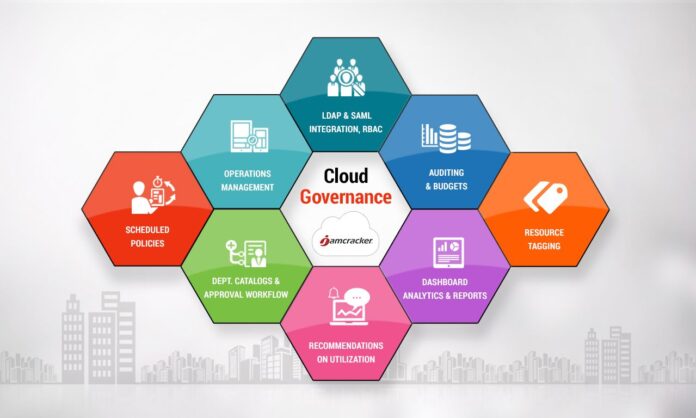As more companies turn to cloud computing to run their operations, it is critical to ensure that cloud resources are utilized efficiently and safely. Cloud management becomes important in this situation. An organization’s use of the cloud is managed and tracked by a collection of policies, practices, and controls known as cloud governance.
For several reasons, cloud governance is vital. First, it ensures that the organization’s goals and objectives are met when using cloud resources. Guarantee that resources are used effectively and economically; this may entail monitoring utilization. It may also involve establishing rules and regulations for compliance, security, and data management.
Second, cloud management aids in risk management. Data breaches, security problems, and other hazards could result from the growing use of cloud services. By ensuring that the proper security measures are in place and that data is being managed safely and in compliance, effective cloud management can assist in reducing these risks.
How, then, does cloud governance function in real life? Let us look more closely.
1. Policy Creation
The first stage in implementing cloud management is to draft rules and regulations that control how the corporation uses the cloud. These policies should be created by the goals and objectives of the firm as well as any applicable legal or compliance requirements.
The following are some examples of policies that could be present in a cloud management framework:
- Data management and classification guidelines
- Security measures
- Access management procedures
- Regulatory guidelines
2. Application of Policy
The next stage after creating policies is to put them into effect. This may entail a range of actions, such as:
- Putting in place access controls to make sure that only people with the proper authorization can access cloud resources.
- Consumption is being monitored to verify that policies and standards are using resources.
- Making sure that sensitive data is handled properly by enforcing data classification and management policies.
- Protecting against data breaches and other security incidents by putting security controls in place.
3. Compliance Inspection
Monitoring compliance is a crucial component of cloud management. Monitoring cloud usage is necessary to ensure it complies with any applicable regulatory and compliance standards for the enterprise.
Examples of compliance standards that might apply to cloud computing include:
- Healthcare organizations and HIPAA
- PCI DSS for businesses that deal with credit card information
- GDPR for companies that handle EU citizens’ data
Organizations may ensure they comply with regulatory requirements and avert potential penalties and fines by monitoring cloud usage for compliance.
4. Controlling Costs
Finally, cloud management can assist in controlling the expenses of cloud utilization. This includes monitoring cloud utilization to ensure resources are used effectively and economically. This may entail:
- Limiting spending on cloud resources by implementing cost controls
- Locating potential cost-saving opportunities
- Monitoring utilization to spot instances of excessive or inefficient resource provisioning
Businesses may maximize the return on their cloud investments by efficiently controlling the costs associated with cloud usage.
In conclusion, effective and secure management of cloud resources depends on cloud management. Organizations may ensure that cloud resources are used in a way that is consistent with their goals and objectives while also managing risk, ensuring compliance, and controlling costs by creating rules, procedures, and controls to govern and monitor cloud usage.







